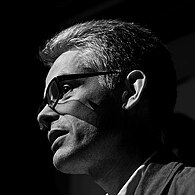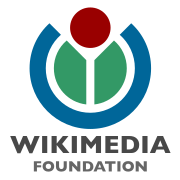ვიკიმანია

სამი დღე, 200 მოლაპარაკება, უკვე დასრულდა.
წარმოიდგინეთ მსოფლიო, რომელშიც პლანეტის თითოეულ მკვიდრს თავისუფლად მიუწვდება ხელი კაცობრიობის მთელ ცოდნაზე. #wikimania2014
Watch the videos on youtube
Watch the videos on Commons (coming soon)
Watch the videos from livestream
Check out the programme!
See who else was there: Hello world!
რა არის ვიკიმანია?
ვიკიმანია არის 2000+ კაციანი კონფერენცია, ფესტივალი, შეხვედრა, სახელოსნო, ჰაკათონი და წვეულება რომელიც ხუთი დღის განმავლობაში გაგრძელდება 2014 წლის აგვისტოში, fringe-ს შემდეგ. ეს ვიკიმედიის მოძრაობის ყოველწლიური ოფიციალური მოვლენაა, სადაც თქვენ აღმოაჩენთ თავისუფალი შინაარსის მქონე ყველა ვიკი პროექტს და ასევე შეხვდებით ყველაზე ცნობილი პროექტ ვიკიპედიის შემქმნელ საზოგადოებას!
ძირითადი ღონისძიებები გაიმართა ლონდონის The Barbican Centre-ში, გაერთიანებული სამეფო. მოწვეული იყო ყველა, მიუხედავად იმისა, ექსპერტი იყო, ენთუზიასტი, დამწყები თუ უბრალოდ ინტერესის გამო მოსული!
ვიკის სახელმწიფო
ვიკიმედიის პროექტების ყოველწლიური განახლება
Wikipedia is a household name — in fact, it’s now one of the five most popular websites in the world, clocking over 21 billion hits every month. With over 110m pages across 287 languages, and a dozen sister projects including dictionaries, newspapers, multimedia repositories and travelguides, it's come a long way since its founding in 2001; the community has grown, the technology has developed, and the organisation has matured. However, there are still sweeping changes to come. more…
-
ჯიმი უელსი
ვიკიპედიის თანადამფუძნებელი -
ლაილა ტრეტიკოვი
ფონდი ვიკიმედიის აღმასრულებელი დირექტორი -
Brandon Harris
Senior Designer at the Wikimedia Foundation -
Erik Möller
VP of Engineering at the Wikimedia Foundation -
Luis Villa
Deputy General Counsel at the Wikimedia Foundation
სოციალური მანქანები
როგორ ხსნის ინტერნეტ-საზოგადოება ადამიანების პოტენციალს?
Once upon a time 'machines' were programmed by programmers and used by users. The success of the Web has changed this relationship: we now see configurations of people interacting with content and with each other, blurring the line between computations performed by machine logic and algorithms, and those that result from input by humans, arising from their own psychological processes and life experience. Rather than drawing a line through such Web-based systems to separate the human and digital parts (as computer science has traditionally done), we can now draw a line around them and treat each such compound as a 'social machine', a machine in which the two aspects are seamlessly interwoven.[1] Of course Wikipedia is one of these, but what others? How can such systems be designed from scratch, and to what ends? მეტი…
-
Sir Nigel Shadbolt
Professor of Artificial Intelligence, Chairman Open Data Institute -
Yaneer Bar-Yam
President of The New England Complex Systems Institute -
Raph Koster
Virtual Community Designer -
Marc-André Pelletier
Operations Engineer (Tool Labs) at the Wikimedia Foundation -
Salil Shetty
Secretary General Amnesty International
განათლების მომავალი
ახლა როდესაც ყველას საშინაო დავალებას ვიკიპედია აკეთებს, რაღა ვისწავლოთ?
To the exasperation of many teachers, Wikipedia is the first port of call for millions of students from primary school to university. Its sheer convenience is challenging standard pedagogical approaches that implicitly assume information is scarce and difficult to duplicate. What if teachers asked students to contribute to Wikipedia instead? მეტი…
-
David White
Head of Technology Enhanced Learning at the University of the Arts London -
Clare Sutcliffe
CEO of Code Club -
Emma Mulqueeny
Founder of Rewired State -
Diana Strassmann
Chair of The Board of The Wiki Education Foundation
Open Data
What can we build when the sum of all human knowledge is machine readable?
Wikidata is a new project of the Wikimedia Foundation: a free, collaborative, multilingual, secondary database, collecting structured data to provide support for Wikipedia, Wikimedia Commons, the other Wikimedia projects, and well beyond that. This may become one of the best open data repositories on Earth — what can we do with it? მეტი…
-
Rufus Pollock
Co-Founder of the Open Knowledge Foundation -
Lydia Pintscher
Wikidata Product Manager -
Viktor Mayer-Schönberger
Professor at the Oxford Internet Institute -
Chris Taggart
CEO of OpenCorporates -
Markus Krötzsch
Research Group Leader at TU Dresden -
Richard Stirling
International Director at the Open Data Institute
Open Scholarship
What happens when the cutting edge of human knowledge is available to all?
In 2013 alone over 500,000 pieces of scholarly research were made open access, across all disciplines — an unprecedented number. These are all citable in Wikipedia, meaning they can be integrated into the encyclopaedia, contextualised and made discoverable by anyone in the world with an internet connection. This level of accessibility of cutting edge research has never existed before in history, and the possible outcome of empowering citizen scientists and opening up academia in this way is beyond reckoning. მეტი…
-
Jack Andraka
Citizen Scientist & Inventor -
Elizabeth Marincola
CEO of The Public Library of Science -
Peter Murray-Rust
Shuttleworth Fellow in Machine Readable Open Access
დემოკრატიული მედია
ყველა მედია კომერციულად ორიენტირებული იქნება?
Media performs an essential political, social, economic, and cultural function in modern democracies. In such societies, media are the principal source of political information and access to public debate, and the key to an informed, participating, self-governing citizenry. Democracy requires a media system that provides people with a wide range of opinion and analysis and debate on important issues, reflects the diversity of citizens, and promotes public accountability of the powers-that-be and the powers-that-want-to-be. There is a growing sense that the growth of the Internet has not paid the democratic dividends that it could. more…
-
Heather Ford
Co-founder of Creative Commons South Africa" -
დენი ო'ბრაიენი
ელექტრონული სასაზღვრო ფონდის საერთაშორისო დირექტორი -
Dan Gillmor
Author of "Mediactive" -
Bill Thompson
BBC Archives -
Carl Miller
Research Director Centre for the Analysis of Social Media at Demos -
Ryan Merkley
CEO at Creative Commons
სპონსორები
პარტნიორები
მედია პარტნიორები
If you are interested in sponsoring next year's Wikimania, please contact wikimania-sponsorship@wikimedia.org
Volunteers

Wikimania was made possible by the 1000s of hours of work by 100s of volunteers
References
- ↑ Towards a classification framework for social machines Nigel Shadbolt, Daniel Alexander Smith, Elena Simperl, Max Van Kleek, Yang Yang, Wendy Hall, Web and Internet Science Group, University of Southampton, UK













































